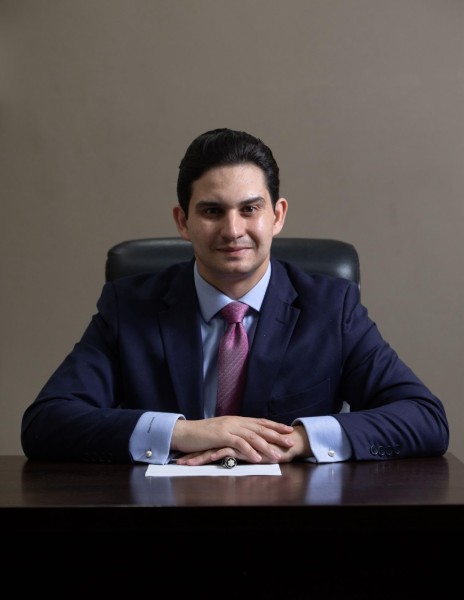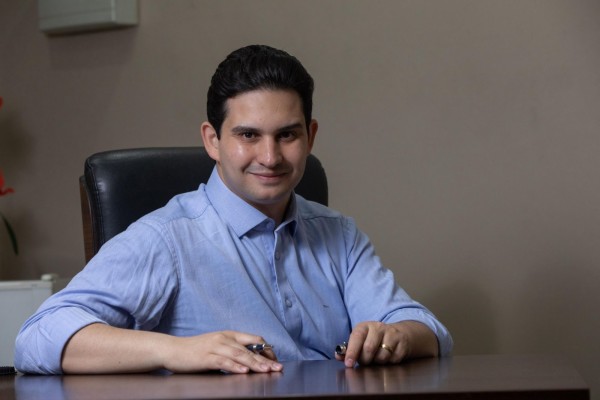Paulo Ricardo Ferreira Announces New Leadership Approach for Global Social Transformation
Paulo Ricardo Ferreira presents a new model for global leadership, focusing on education, ethics, and innovation to create a sustainable, human-centered future.
Brazil, 17th Oct 2025 – Paulo Ricardo Ferreira, an administrator, ecclesiastical leader, project manager, and social innovation strategist, has dedicated his life to shaping a future where leadership is both creative and impactful. As the world faces multiple crises, economic, social, environmental, and moral, Ferreira believes that the future can only be rebuilt through a new kind of leadership: one that blends purpose, people, and progress.

Ferreira’s approach is rooted in his belief that “it is not the lack of resources that stalls development; it is the lack of vision.” He emphasizes the need for leaders who can turn adversity into platforms for innovation and hope. His mission is to inspire change at the grassroots level, empowering local communities and organizations to make lasting impact.
Addressing Global Inequality and the Leadership Crisis
Ferreira is deeply concerned about the rising global inequality, where the wealthiest 10% of the population controls more than 75% of the world’s wealth. At the same time, access to education and opportunities remains unequal, particularly in developing countries. He asserts that these figures highlight a leadership crisis, where leaders are often disconnected from the realities faced by people.
“The world does not suffer from a lack of technology, but from a lack of sensitivity. We have leaders connected to the economy but disconnected from people,” Ferreira states.
The COVID-19 pandemic accelerated existing vulnerabilities, such as food insecurity, educational collapse, emotional fragility, and institutional distrust. For Ferreira, this was a wake-up call: true reconstruction begins at the local level, within communities, social organizations, churches, and local movements.
Creative Leadership: A New Model for the Future
Paulo Ricardo Ferreira advocates for creative leadership, a model that combines technical expertise with human compassion. His own academic journey reflects this: a blend of education in management, human transformation, and social innovation from renowned institutions like Harvard and Cambridge.
“Creative leadership is the one that unites technical competence with human compassion. A leader of the future must be as strategic as they are empathetic,” Ferreira explains.
His work emphasizes the importance of supporting community leaders, fostering social entrepreneurship, and developing educational models that integrate technology, values, and sustainability. He also emphasizes that a country’s future depends on its ability to nurture both minds and character: “A country that forms minds but does not form character is educating for collapse.”
The Role of Faith and Social Engagement in Leadership
Central to Ferreira’s vision is the integration of ethics, faith, and innovation in leadership. He advocates for churches, NGOs, and philanthropic entities to adopt an entrepreneurial mindset, enhancing the professionalism of their efforts and measuring outcomes effectively.
“Faith needs to leave the walls and become public, cultural, and economic policy,” he says. “Love of neighbor is not an exclusively religious concept; it is a policy of social reconstruction.”
He believes that religious and social organizations hold tremendous potential to influence positive change, but they often lack strategic management. Ferreira proposes a framework that combines faith with governance, compassion with planning, and charity with sustainability.
Education and Human Development: The Cornerstones of Change
Ferreira argues that education is the key to shaping a better future. However, he advocates for a shift away from traditional educational models, pushing for a system that teaches people to think, create, and lead, rather than simply memorize. “Schools and universities must stop being diploma factories and become workshops of destiny,” he says.
Ferreira’s vision includes human development programs that combine ethical principles, purpose-driven management, and digital innovation. He warns that “the future of work will be human. Technology without a soul is tyranny.”
Promoting Circular Prosperity
Ferreira’s economic vision is based on circular prosperity, where profit and social impact progress together. He advocates for a balanced approach where companies, governments, and social movements focus on three key pillars: educating with purpose, leading with empathy, and growing with responsibility.
Rebuilding Leadership with Strategy and Heart
In today’s era of emotional fatigue and institutional collapse, Ferreira stresses the need to rebuild leadership. According to the World Happiness Report 2025, global dissatisfaction with governments and leadership has reached its highest level since 2008. Ferreira believes that the solution lies in reconnecting leadership with its core human purpose.
“We need to believe again that it is possible to do good and succeed at the same time. Ethics and efficiency are not opposites; they are sisters that lost each other and need to be reunited,” Ferreira emphasizes.
He argues that every form of leadership, be it political, corporate, or spiritual, must combine clarity of purpose, moral consistency, and execution capacity. Without these, leadership will turn into vanity and management into chaos.
Transforming Communities for Global Reconstruction
Ferreira proposes a new way of thinking about social movements and religious entities: as ecosystems of impact. These entities should focus on coordinating volunteer efforts, professional training, digital education, and community entrepreneurship. He also suggests that local governments create social laboratories to test sustainable, scalable solutions through partnerships between the public, private, and civil sectors.
“When government and church join forces to educate, to foster enterprise, and to care, no ideology divides, humanity adds up,” he declares.
For Ferreira, global reconstruction will not come from economic summits or top-down approaches, but from transformed communities. “The economy is born from the heart. If the heart is corrupted, no public policy will be enough.”
A Legacy of Leadership and Social Transformation

For Paulo Ricardo Ferreira, social transformation is only possible through education. He represents a new generation of leaders who are not merely concerned with the future, but actively building it. His work combines faith, management, and human development to create a fairer, more sustainable world.
“I am not interested in being followed, but in forming people who learn to lead themselves,” Ferreira says.
His global mission is centered around impacting new generations by uniting his knowledge and faith with the voices and hearts of those around him, all working toward the restoration of human dignity as the foundation of progress.
“The world is waiting for fewer speeches and more examples. True leadership is silent, but it leaves traces that speak for centuries,” Ferreira concludes.
About Paulo Ricardo Ferreira
Paulo Ricardo Ferreira is an administrator, ecclesiastical leader, project manager, and social innovation strategist, committed to transforming communities through education, leadership, and faith. His work focuses on combining technology, values, and sustainability to create a fairer, more inclusive world.
Media Contact
Paulo Ricardo Ferreira
Educator, Project Manager & Social Leader
Email: info@pauloricardoferreira.com
Website
Canva Site
Youtube
Instagram
Tiktok
Company Details
Organization: Paulo Ricardo
Contact Person: Paulo Ricardo
Website: https://pauloricardoferreira.com/
Email: Send Email
Country: Brazil
Release Id: 17102535549
